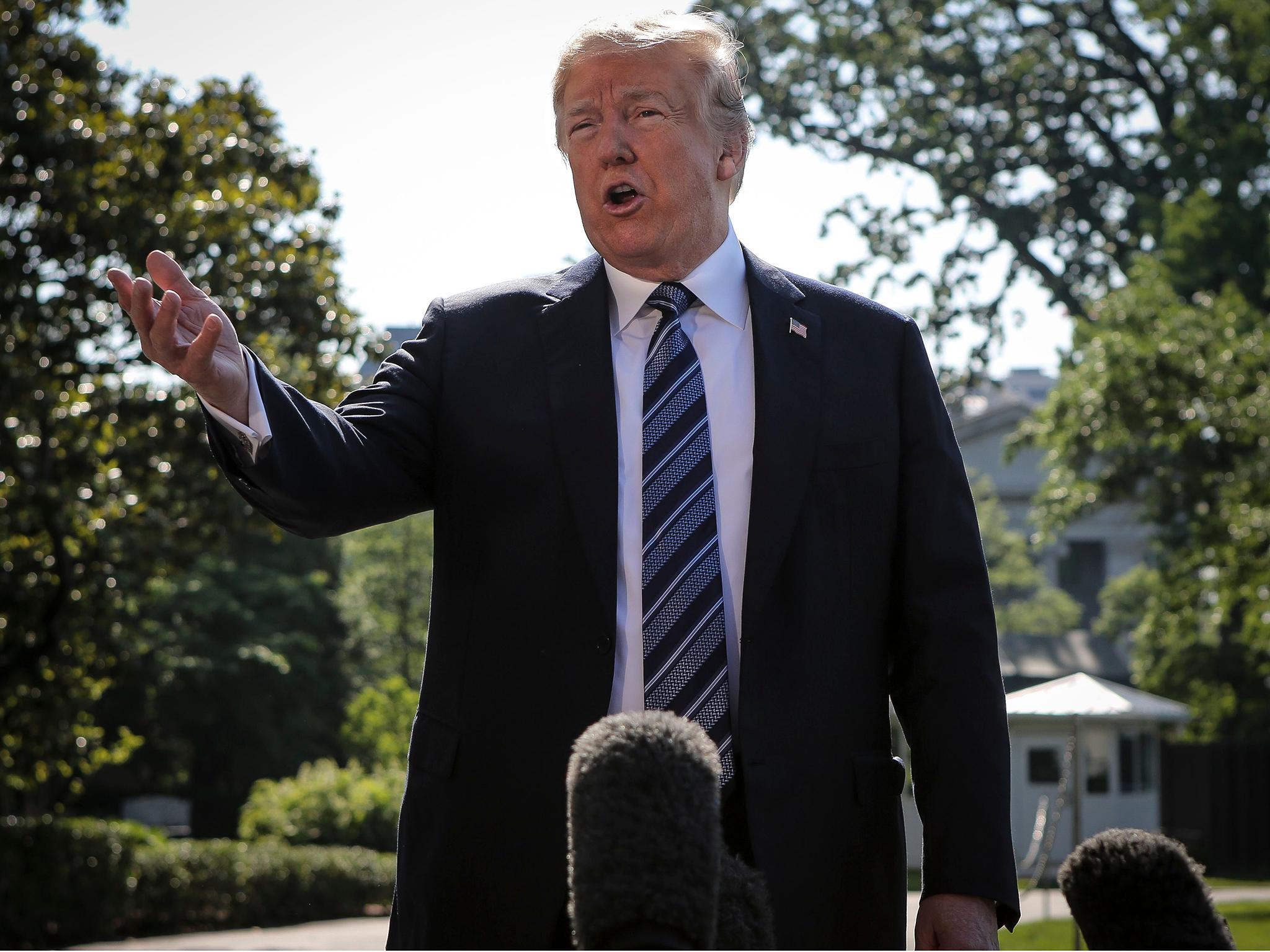Your support helps us to tell the story
From reproductive rights to climate change to Big Tech, The Independent is on the ground when the story is developing. Whether it's investigating the financials of Elon Musk's pro-Trump PAC or producing our latest documentary, 'The A Word', which shines a light on the American women fighting for reproductive rights, we know how important it is to parse out the facts from the messaging.
At such a critical moment in US history, we need reporters on the ground. Your donation allows us to keep sending journalists to speak to both sides of the story.
The Independent is trusted by Americans across the entire political spectrum. And unlike many other quality news outlets, we choose not to lock Americans out of our reporting and analysis with paywalls. We believe quality journalism should be available to everyone, paid for by those who can afford it.
Your support makes all the difference.President Donald Trump falsely claimed the Korean War was the “longest war” in history. It was one of a host of inaccurate or puzzling statements he made to reporters Friday.
WHAT WAS SAID
“We talked about ending the war. And you know, this war has been going on — it’s got to be the longest war — almost 70 years, right?”
— Trump, speaking to reporters after a meeting with a North Korean envoy Friday
THE FACTS
False.
The Korean War began in 1950 and an armistice ended the fighting in 1953, but no peace treaty was officially signed. Still, Trump is wrong that the uneasy 65-year truce could constitute the longest war.
It is difficult to definitively say what was the longest war ever. Some involved a continuing fight while others were a series of conflicts with periods of peace. But no matter the parameters, there are numerous examples of wars that ran longer than the Korean War.
For example, the Hundred Years’ War between England and France spanned from 1337 to 1453.
The Punic Wars, from 265 B.C. to 146 B.C., lasted longer but were made up of three wars between Rome and Carthage.
Like the Korean War, several wars have been technically extended because no formal peace treaty was signed.
The Punic Wars can be said to have lasted over two millenniums, until 1985, when the mayors of Rome and Carthage agreed to an official peace treaty. And Japan and Russia have yet to sign a treaty to end World War II because of a continuing territorial dispute (although they currently are discussing a formal resolution).
There’s also the curious case of the Scilly conflict, a war between the Netherlands and Isles of Scilly in England that technically lasted more than three centuries but involved no injuries and no shots fired. A formal declaration of war went unheeded until 1986, when a peace treaty was signed.
South Korea, North Korea and the United States are discussing a peace treaty to formally end the Korean War.
WHAT WAS SAID
“Don’t forget, this was a meeting where a letter was given to me by Kim Jong Un, and that letter was a very nice letter. Oh, would you like to see what was in that letter? Would you like it?”
— Trump to reporters, at 2:43 p.m.
THE FACTS
This is contradicted eight minutes later.
“I haven’t seen the letter yet. I purposely didn’t open the letter. I haven’t opened it. I didn’t open it in front of the director.”
— Trump to reporters, at 2:51 p.m.
Trump is referring to a letter from Kim, the North Korean leader, that his envoy delivered to the president at the White House. It was not immediately known what the letter said, and Trump shed no clarity on its contents.
An hour later, an unnamed White House official told Reuters correspondent Steve Holland that Trump had read the letter — but did not specify whether that was before or after his comments to reporters.
WHAT WAS SAID
“Mexico is making over $100 billion a year and they’re not helping us with our border because they have strong laws and we have horrible laws. We have horrible border laws.”
— Trump, nearing the end of his 15-minute remarks to reporters.
THE FACTS
This requires context.
The president’s claim would have been more accurate a decade ago, when unauthorised immigration was a felony punishable by up to 10 years in prison. But in 2008, Mexican lawmakers decriminalised illegal immigration, which is now considered a minor offence.
Under US law, a first-time violation of illegally entering the United States can be punished by fines of up to hundreds of dollars or a jail sentence of up to six months.
The two countries have similar laws and protocols for inspection and documentation at their respective ports of entry. But Mexico is much weaker in enforcing its border laws, said Rey Koslowski, a professor at the University at Albany who specialises in international migration.
“To say that somehow or another that Mexico is stronger and better equipped,” Koslowski said, “is laughable.”
The United States also detains and deports more people than Mexico. That’s partly because of its larger population of unauthorised immigrants but also because of aggressive enforcement — which Trump has previously lauded.
OTHER CLAIMS
Trump also overstated the United States’ trade deficit with Mexico as “over $100 billion a year” (it was $69 billion last year); falsely claimed the United States loses “many, many billions of dollars with Canada” (it has a trade surplus); and said the 3.8 per cent unemployment rate was the lowest in 50 years (it was also 3.8 per cent in 2000).

Join our commenting forum
Join thought-provoking conversations, follow other Independent readers and see their replies
Comments